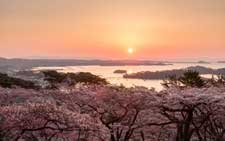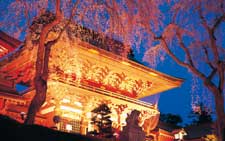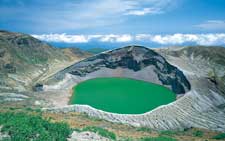


- About Us
-
Member Regional Governments
- China
- Japan
- South Korea (ROK)
- Introduction
- Busan Metropolitan City
- Daegu Metropolitan City
- Incheon Metropolitan City
- Gwangju Metropolitan City
- Daejeon Metropolitan City
- Ulsan Metropolitan City
- Sejong Special Self-Governing City
- Gyeonggi-do Province
- Gangwon State
- Chungcheongbuk-do Province
- Chungcheongnam-do Province
- Jeongbuk State
- Jeollanam-do Province
- Gyeongsangbuk-do Province
- Gyeongsangnam-do Province
- Jeju Special Self-Governing Province
- North Korea (DPRK)
- Mongolia
- Introduction
- Ulaanbaatar City
- Arkhangai Province
- Bayan-Ulgii Province
- Bayankhongor Province
- Bulgan Province
- Govi-Altai Province
- Govisumber Province
- Darkhan-Uul Province
- Dornod Province
- Dornogovi Province
- Dundgovi Province
- Zavkhan Province
- Orkhon Province
- Uvurkhangai Province
- Umnugovi Province
- Sukhbaatar Province
- Selenge Province
- Tuv Province
- Uvs Province
- Khovd Province
- Khentii Province
- Khuvsgul Province
- Culture & Tourism
- Russia
- Introduction
- Republic of Buryatia
- Republic of Sakha(Yakutia)
- Republic of Tuva
- Altai Region
- Zabaikalsky Territory
- Krasnoyarsk Territory
- Primorsky Territory
- Khabarovsk Territory
- Amur Region
- Irkutsk Region
- Kamchatka Territory
- Magadan Region
- Sakhalin Region
- Tomsk Region
- Kemerovo Region
- Republic of Khakassia
- Republic of Altai
- Associate Member
- Observer
-
Subcommittee
- Subcommittee
- Subcommittee on Economy and Humanities Exchange
- Subcommittee on Agriculture
- Subcommittee on Educational and Cultural Exchange
- Subcommittee on Environment
- Subcommittee on Disaster Prevention
- Subcommittee on Energy and Climate Change
- Subcommittee on Mineral Resources Development
- Subcommittee on Tourism
- Subcommittee on Oceans and Fisheries
- Subcommittee on Bio-medical Industry
- Subcommittee on Sports
- Subcommittee on Logistics and Transportation
- Subcommittee on International Exchange of Human Resources
- Subcommittee on E-Commerce
- Subcommittee on Innovation Plus
- Subcommittee on Youth Policy
- Subcommittee on Traditional Medicine
- News/Activities
- Getting to Know Your Region
- Publications
- Database
The hub of exchange &
cooperation in Northeast Asia
Culture & Tourism
Natural View

Matsushima, One of Japan's Three Views
Matsushima, with its clear and beautiful scenery, is one of Japan's three views, along with Amanohashidate in Kyoto Prefecture and Miyajima in Hiroshima Prefecture. It is a scenic spot where you can enjoy the view of over 260 islands both inside and outside Matsushima Bay, surrounded by natural beauty. This picturesque landscape inspired numerous poems during the Heian period, and it is said that Matsuo Basho, a famous poet of the Edo period, visited Matsushima and was so overwhelmed by its beauty that he couldn't find words to compose a poem. Matsushima is also known as a popular destination for moon viewing. In 1922, Albert Einstein visited Matsushima to observe the moon and was said to have been speechless by its breathtaking scenery, further captivating people's hearts throughout history.
In 2013, Matsushima became the first location in Japan to join “The Most Beautiful Bays in the World Club”(established in 1997, headquartered in France). In addition, Matsushima is closely associated with Date Masamune, the founder of Sendai. There are many historical buildings and structures that remain, such as the scenic pavilion “Kanran-tei” that the Date clan used for moon viewing and the temple “Zuiganji,” in which Masamune participated in its construction. These historical sites add to the attraction of Matsushima.
- Location : Matsushima-machi, Miyagi-gun, Miyagi Prefecture
- Contact:Matsushima Tourism Association, General Incorporated Foundation TEL 81-22-354-2618
- Parking:Available

Shiogama Shrine
Shiogama Shrine, which opened as a designated national port called “Kokka Jo Naru” during the construction of the government agency Daikansho in 724, is the most prestigious shrine in Mutsu Province. of the Tohoku region. The construction of the current building was first started by Date Masamune and was completed during the Yoshimune era (1704). It is designated as an important cultural property with many valuable cultural assets. There is a museum in the back of the shrine, also known as Urazaka or Onnazaka, where treasures and exhibits are displayed.
The main approach is called Omotezaka or Otoko-zaka, and from the front gate of the main hall, a long steep stone staircase extends, representing one of the scenic views of Shiogama. During events such as Hotematsuri (March 10), Flower Festival (fourth Sunday of April), and the Harbor Festival (Marine Day), Miko-shi (divine palanquin for transporting a Shinto deity for festival) which weighs one ton descends 202 stone steps.
- Location:1-1 Ichimoriyama, Shiogama-shi, Miyagi Prefecture
- Contact:Shibahiko Shrine・Shiogama Shrine / TEL 022-367-1611
- Parking:Available

Mount Zao Range / Oakama
The Mount Zao Range, centered around Mount Kumano-take, includes many mountians such as Jizosan and Katadatake. In spring, it is known for its fresh greenery, in summer for its alpine flower fields, in autumn for its autumn foliage, and in winter for skiing and juhyo (frost-covered trees). In addition, the representative feature of Zao, “Okama,” is very famous. The volcanic crater lake, with a maxmimum depth of 25 meters, is filled with water of a deep emerald green color.
- Address : Zao-machi, Katta-gun, Miyagi Prefecutre
- Contact : Zao-machi Agricultural and Tourism Division / TEL 0224-33-2215, Zao-machi Tourist Information Center / TEL 0224-34-2725
- Parking : Available
For further information, please refer to Miyagi Prefecture's comprehensive tourist website www.miyagi-kankou.or.jp
Information may be available in Japanese, English, Chinese, and Korean.






